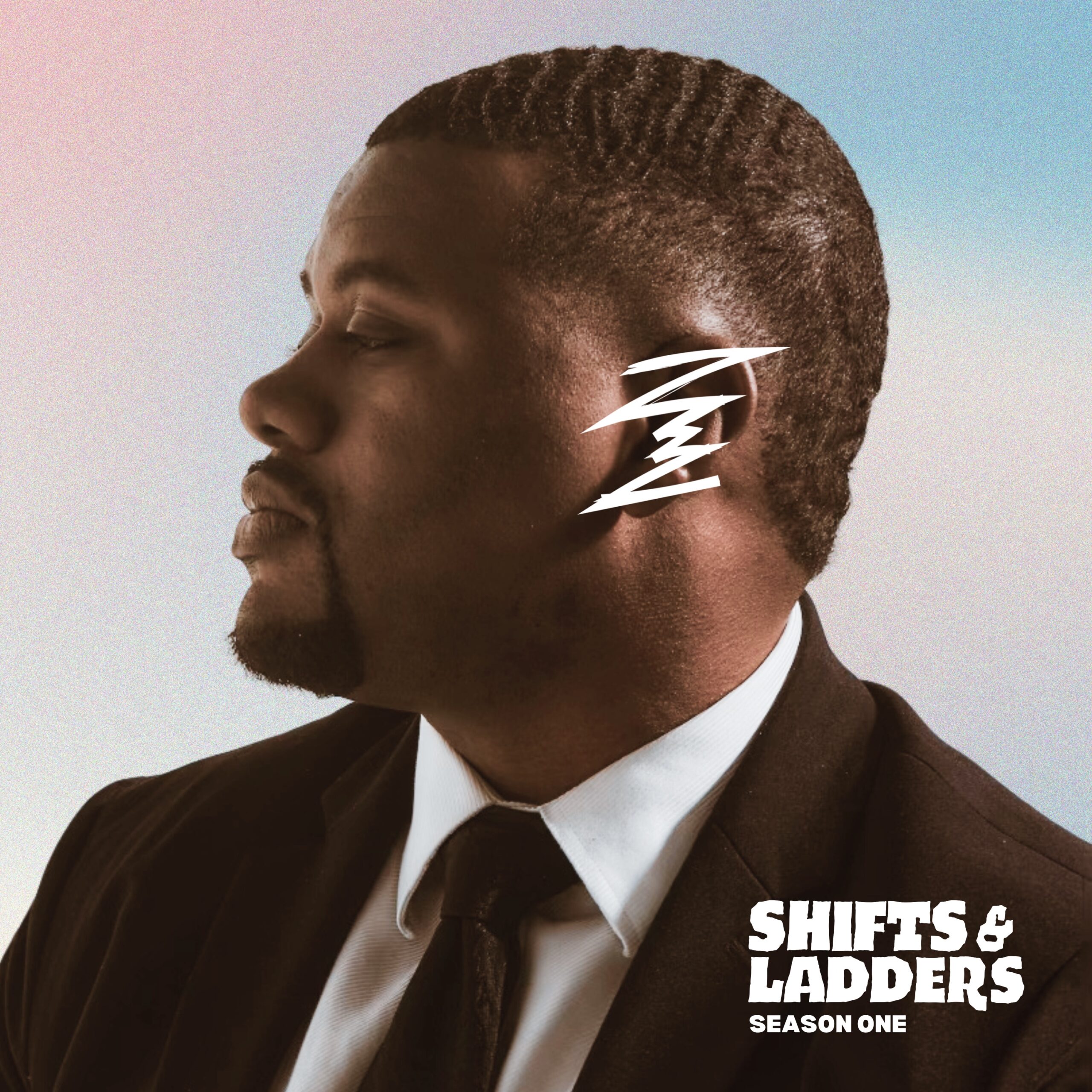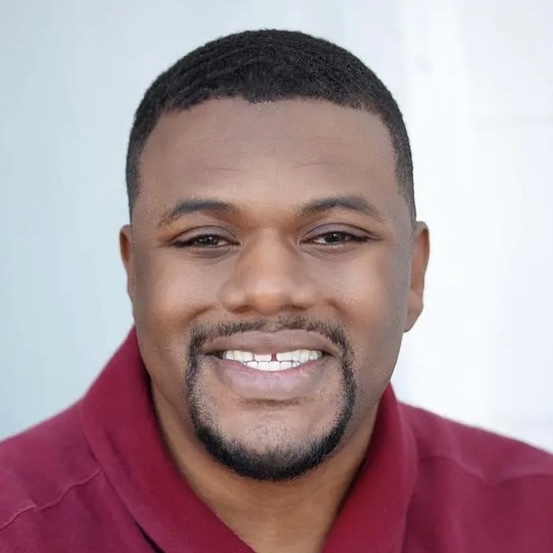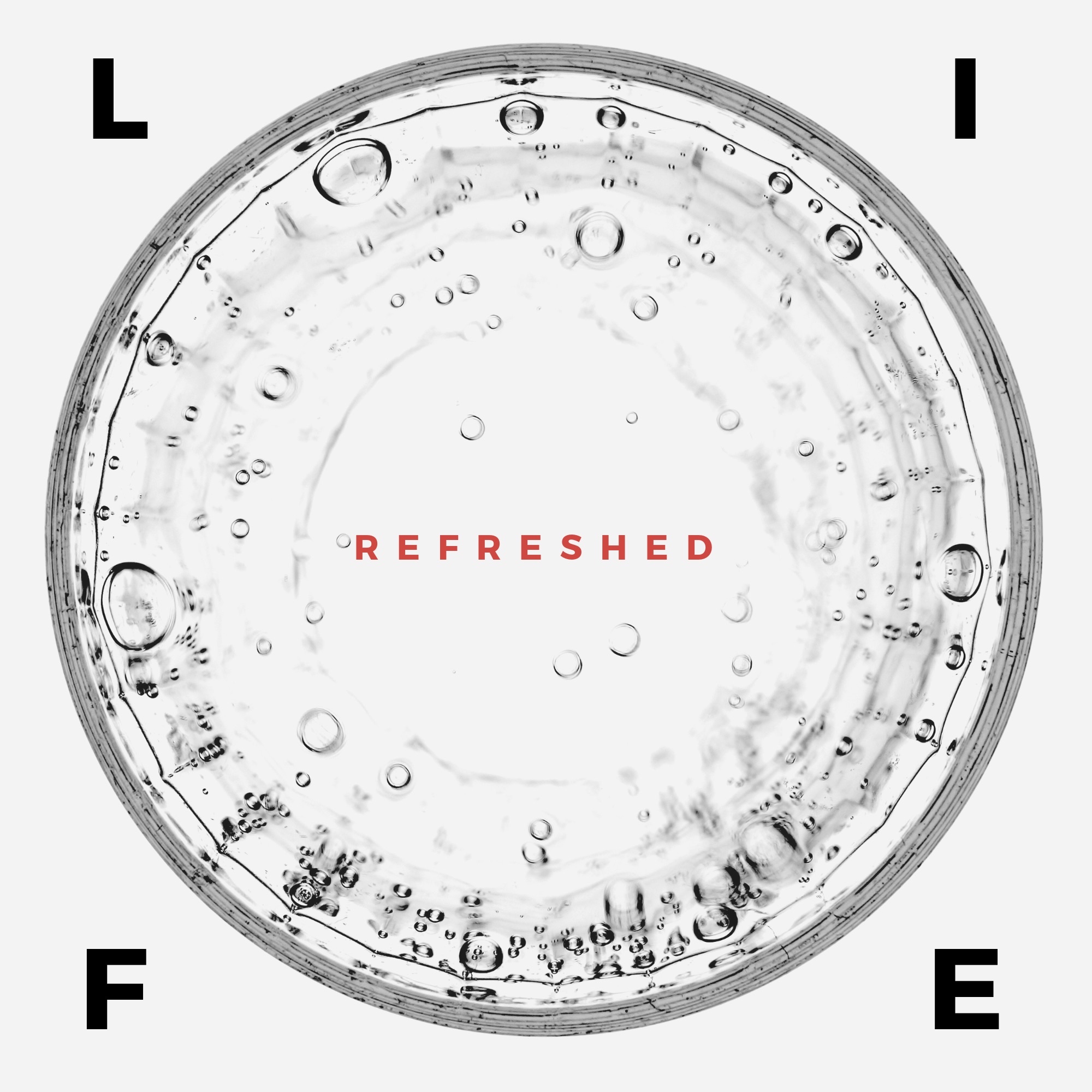Episode Transcript
[00:00:00] Many times we're missing this one ingredient to our elevation to our progression, and it's called humility.
[00:00:08] Let's talk about it.
[00:00:16] God doesn't design us to fit. He designs us to be impactful.
[00:00:24] Hey everyone, welcome to Shifts and Ladders. This is Ryan Robinson. Let me get my chair right here. My voice has been going out for the last week, so if you can excuse the voice changes, hopefully y'all can hear me. Well, we're going to talk about humility. Actually, we're going to talk about pride first before we actually talk about humility. Because pride is actually the.
[00:00:48] The enemy of humility. The enemy. Pride is the enemy of humility. Humility and what it causes is this self reliance.
[00:01:02] It causes us to think about other things besides God.
[00:01:08] We have several examples in the Bible of what this actually looks like. But I want to actually take us to Proverbs. We spend a lot of time in Proverbs. It's actually consider Proverbs your Wheaties for wisdom. I don't know what's up with the alliteration today the preacher is coming out. But consider it your Wheaties for wisdom. Because every day you're going to have to learn how to apply some level of wisdom to your day. And honestly, we don't have it all. The cost of experience is expensive. So getting wisdom from the experiences of those who have gone before us is actually one of the wisest things you can do. So what we're going to do is we're going to go to Proverbs, chapter 6, verse 16.
[00:01:53] Starting at verse 16. And believe it or not, the Lord hates something.
[00:02:00] And this is where we actually start getting into what causes people to be prideful. Or I guess take this back, the results of pride.
[00:02:11] So it starts like this. There are six things the Lord hates now know seven things he detests. Haughty eyes, a lying tongue, hands that kill the innocent, a heart that plots, Evil feet that race to do wrong, A false witness who pours out lies, and a person who sows discord in a family.
[00:02:38] Those are some ugly things.
[00:02:41] And we have all at some point done one of these things. So let's not be pretend that we're super perfect because we aren't. Right. Everyone says I'm not perfect. I get it. But sometimes what we don't understand is how our imperfections manifest in the actions that we do. And these are some things that the Lord hates that we do sometimes.
[00:03:04] Yeah, sometimes with my kids, you know, there's. I love my kids dearly, but there's some things that I don't really like that they do sometimes, right? So doesn't mean you don't love someone or you don't care about someone. But these actions cause us to not preferably enjoy them. So there's a, there's a. Usually a root to it. And sometimes and actually many times is pride. Haughty eyes. That's the number one thing he does not like. Haughty eyes as looking someone up and down. You know that look, you roll your eyes looking at them and thinking that you're better than them.
[00:03:43] Haughty is another word for pride. And actually it causes us to think about no matter what happens, are we really looking at people as if they are image bearers of God.
[00:03:59] So when you think you have something better or you look better or whatever the case is, you are actually saying that you are better than the God. Sorry, you are better than someone. When the God of the universe made all of us to be the same, he made us image bearer. So if you are looking at someone and you actually don't see the image of God in them, you actually have a problem. You got a problem, man. You have a really big problem. Because what we end up mistreating people because we think that we are better than them. Racism, sexism, all ageism, all of these things that cause division with people, which is number seven here, a person who sows discord in a family.
[00:04:51] All of these things that cause division are because we fail to see that the other person is an image bearer of God. And ladies and gentlemen, that is pride in its most ugly form.
[00:05:11] In its ugly form. Right?
[00:05:15] So I want us to. I'm gonna pull up a couple other scriptures because I think this is important for us to, to lock in on. There are several areas and these days we'll call it ego. Right?
[00:05:29] But pride is probably the more is the better word to use in the Bible.
[00:05:37] There's a couple of people that have struggled with pride in the Bible and some of the things that it caused them to do in as a result of it actually disqualified them from blessings, disqualified them from, from opportunities really. I think the first one, and we'll talk about this, but we'll talk about Pharaoh.
[00:06:03] In the book of Exodus, Pharaoh had this problem. He didn't want to let the people go. Now the part of it was he did not have any prior knowledge of Joseph. And Joseph is a biblical character who had a plan to save not only Egypt, but to save the Israelites from a famine. So he basically was wrongfully put in prison. I'm cutting right to the end here, but if you have any questions, please go to Genesis chapter 34 to get the whole story of Joseph. But long story short, he was wrongfully put in prison. He's in prison for about 14 years.
[00:06:47] There was an individual, a cupbearer, who remembered Joseph, brought his name up to Pharaoh. Pharaoh has these rough dreams he has. He needs help of interpretation in any of his people. None of his people could give him insight as to what those were, but Joseph could. And as a result, Joseph was elevated to second in command and was a father unto Pharaoh, the Bible says so. He was like a mentor to him. And essentially he puts his plan in place. And this plan that he puts in place actually keeps Egypt not only thriving, but helps the people stay healthy, have food, and it brings other nations who did not plan for this famine to come and barter with Egypt, namely Israel in not Israel, excuse me, his Joseph's brothers come to find food and all those kinds of things. And that essentially creates this whole thing.
[00:07:48] But what ends up happening here is that Saul, Pharaoh has this moment of pride where he's like, well, who are you?
[00:08:01] Who is your God? And they've basically forgotten that Joseph was an Israelite. It had been several hundred years since then. And at that point, the Bible says when Moses is going in front of Pharaoh, it says that God hardened the heart of Pharaoh and he refused to let the people go.
[00:08:26] Pride has a way of hardening us to a point that we cannot be touched. It causes us to have no feeling. It causes us to have absolutely no empathy for the person, the object of our assault. And you don't humanize them, you treat them as an object. There's so many things that Pharaoh had done during that time to try and make his point that he was the guy in charge. He took straw with. Took the straw out of the bricks that the Israelites used to build buildings. And now they had to make. They had to make bricks with no straw. They increased the labor, they took things away because he wanted the Israelites to know. He wanted Moses to know that he was indeed the person in charge.
[00:09:17] He was the king, they were the objects. And he did everything he could until he couldn't to make that claim known. And every time something went to his heart to free the people. The Bible says there's 10 plagues. And at the beginning of every 10th plague that Moses would go in front of Pharaoh and say, let my people go. That's what the Lord of Israel says. It says God hardened his heart.
[00:09:51] So Maybe. Have you hardened your heart to certain people?
[00:09:56] Have you hardened yourself to things that you don't quite understand and said because you don't understand, you are above them? Have you, have you evaluated that, that have you evaluated the sufferings of people?
[00:10:12] And do you just flip the channel and say, well, that ain't me, y'all, I'm gonna just move on forward?
[00:10:20] It takes some self evaluation because maybe, perhaps you have done that and may not even realize it.
[00:10:30] There's some other scriptures here I'm going to pull up. Another.
[00:10:35] Another Old Testament example. King Saul, the first king of Israel.
[00:10:47] His biggest issue was he was insecure.
[00:10:51] He was insecure and his insecurities were masked by pride, self reliance.
[00:11:00] And I'm gonna go to a quick scripture here. It's 1st Samuel, chapter 15. 1st, 1st Samuel, chapter 15, 17. It says, and Samuel told him, although you may think little of yourself, are you not the leader of the tribes of Israel?
[00:11:18] Samuel is the prophet. This is the guy who said, you, the guy I'm anointed, put oil on his head, blessed him. And Samuel told him, although you may think little of yourself, are you not the leader of the tribes of Israel? The Lord has anointed you king of Israel. And the Lord sent you on a mission and told you, go and completely destroy the sinners, the Amalekites, until they are dead. Why haven't you obeyed the Lord? And why did you rush for the plunder and do what was evil in the Lord, Lord's sight?
[00:11:52] And he says, but I did obey the Lord. Saul insisted. I carried out the mission he gave me. I brought back King Ahag, but I destroyed everyone else. Then my troops brought in the best of the sheep and the goats and the cattle and the plunder to sacrifice to the Lord your God in Gilgal. But Samuel replied, what is more pleasing to the Lord? Your burnt offerings and sacrifices are your obedience to his voice. Listen, obedience is better than sacrifice, and submission is better than offering the fat of rams. Rebellion is as sinful as witchcraft, and stubbornness is bad as worshiping idols. So because you have rejected the command of the Lord, he has rejected you as king.
[00:12:44] Do some of those excuses sound like what we would do? Sometimes that we have intentions on doing something good, but sometimes our intentions are rooted in our pride because we want to communicate and display something. But Saul or Samuel brings up a very good point. In the beginning, although you think little yourself, the prophet said that.
[00:13:17] So if some of the things that Samuel is displaying are some things that you have done yourself, perhaps it's because you think little of yourself that you decide to go left instead of going right where you were told to.
[00:13:34] Perhaps you've made decisions that are impactful because you wanted to show that you are the one who has the answers, who has the intellect to solve everybody's problems. But baby, you're not that smart, you're not that wise, and you are not the solution to everybody's problem.
[00:14:00] You're there for a reason, but not for everyone.
[00:14:07] That's the hardest thing to honestly internalize.
[00:14:16] God has There are billions and billions of people in the world, and yes, you are very special, but you are very special in the specific thing that you were brought here to do.
[00:14:34] But if you start going outside of the intentions of your design, you will find yourself getting bumped around, knocked around, because you just didn't stay in your lane.
[00:14:51] And I know people say stay in your lane. No, because you can cause accidents if someone doesn't stay in the lane on the highway.
[00:15:01] People don't know what to do because they're all over the place trying to avoid you.
[00:15:08] So why is it important for us to understand pride before we understand humility?
[00:15:14] We have to understand the impact of what it is, but also understand what it looks like.
[00:15:20] And if you are feeling these things or lack of feeling or doing things in order to get validation externally because you think little of yourself, an external thing you think will actually provide some level of value, I would gather to say you probably have a pride issue.
[00:15:50] And Bible says sin is like leaven and it's like yeast and a little yeast implodes the whole loaf.
[00:16:03] It doesn't take a whole lot for yeast to take effect.
[00:16:09] So I want us to understand this before we get into humility.
[00:16:18] Most people enjoy right now Prophet Kendrick Lamar about being if you don't know that song, we'll put it in the. We'll put the link because I if I put the song in the thing, you know, YouTube will get mad. But we'll put. We'll give him some.
[00:16:40] We'll give him some views. Not like he needs it. But it's important for us to understand what humility looks like. So part of this, and I'm going to lead us with this scripture. And the scripture is in First Peter, chapter five, verses six and seven.
[00:16:59] And this is what the examples that I just shared did not do.
[00:17:03] It says this Humble yourselves, therefore, under the mighty hand of God that he may lift you up in due season. Cast your cares upon him because he cares for you.
[00:17:17] Humility is knowing where you are in the totem pole that you're not in charge. God is God and you are not. We'll talk about it next in the next podcast of Shifts and Ladders, and hopefully my voice will be better. But what I need you to do is to share this with somebody that you care about. Let someone know that this pod exists. Like on Apple Podcast.
[00:17:42] Sorry, subscribe on Apple Podcasts and Spotify. Subscribe and like on the YouTube channel. If anything, be blessed, have a great one, and be reminded that pride is not God's way, because we are not looking at each other as image bearers of God. Keep that locked in this week and we'll catch you next time. Peace.




